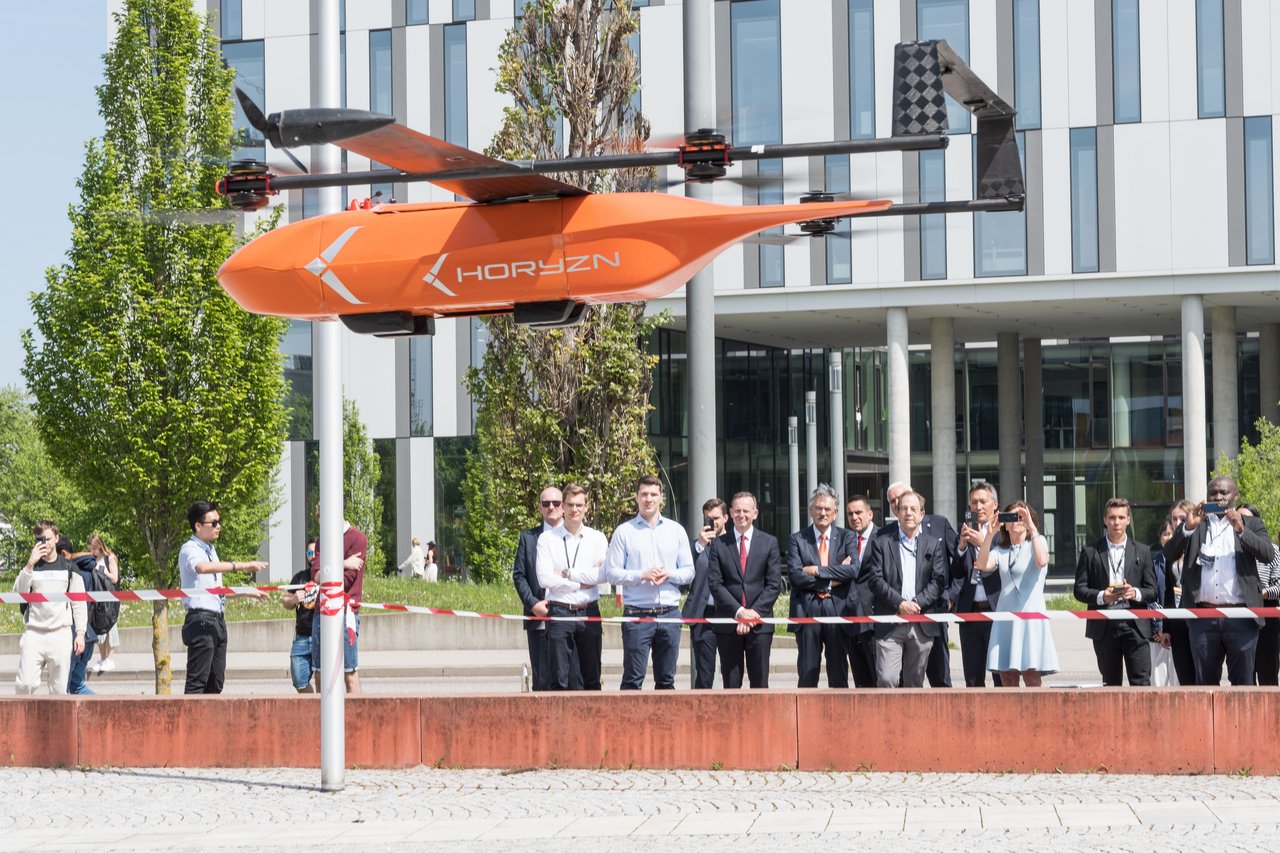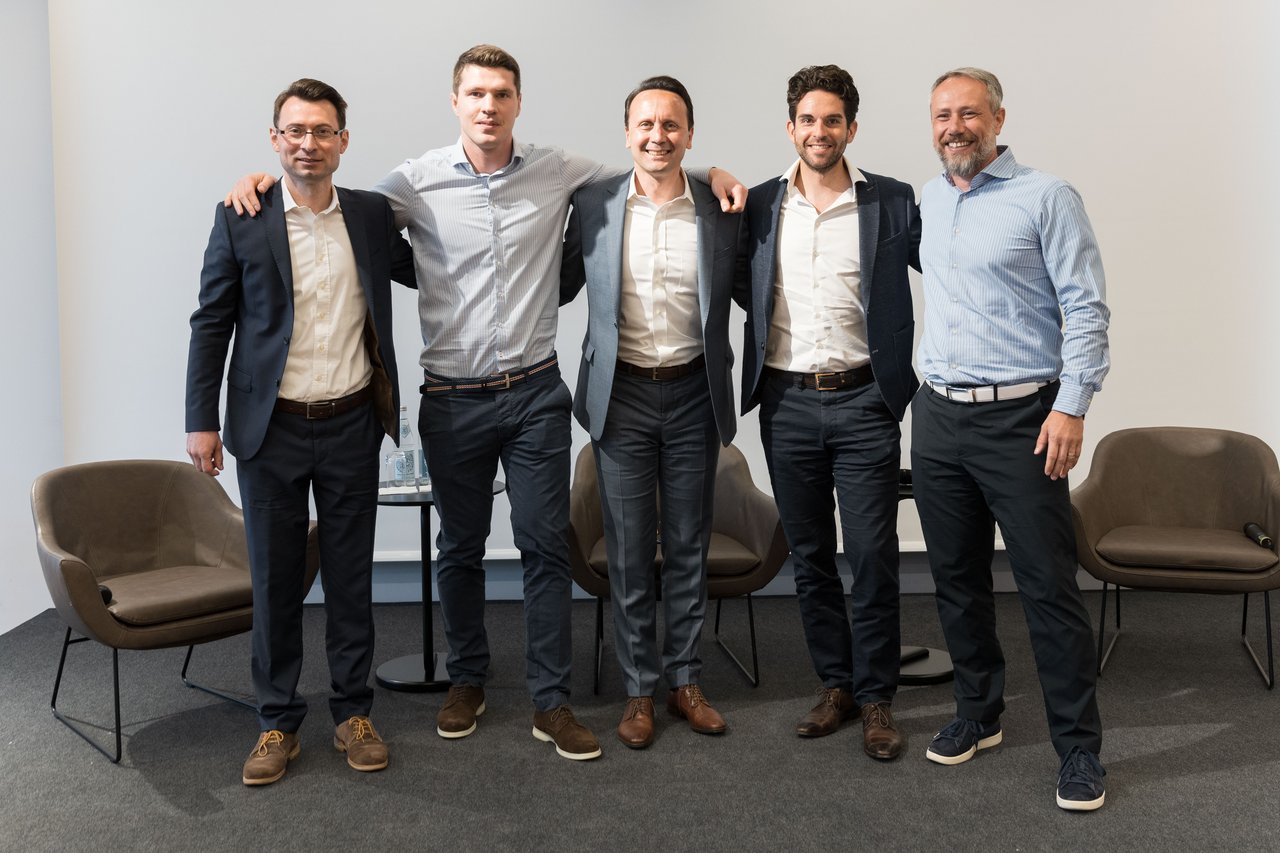Drones and air cabs: What the aviation revolution needs
International, Study, Research, Location |

Greater use of airspace is crucial for the mobility of the future - at least if the drone industry leaders have their way. At a specialist congress at the Technical University of Munich (TUM), guests from the worlds of science, business and politics discussed what steps are needed to ensure widespread use of air cabs and also unmanned aerial vehicles. In addition to the co-founder of the TUM spin-off Lilium, Daniel Wiegand, and the CEO of the flight cab start-up Volocopter, Dirk Hoke, the Federal Minister of Transport, Dr. Volker Wissing, also attended the conference and promised better framework conditions for development.
Air cabs and unmanned drones can be used to transport people and goods quickly and with pinpoint accuracy - an enormous potential for society and a great opportunity for innovative ideas. At the "Expanding Horyzns" conference, industry representatives, scientists and politicians discussed the challenges that still need to be overcome in the drone business. In addition to further support from politics, the industry would also like to see more courage in investing in this area. At the TUM campus in Garching, the student initiative Horyzn organized not only the congress but also a demonstration of its "Franky" defibrillator drone. It allows people to be provided with a defibrillator in the event of cardiac arrest, even in areas that are difficult to access, thus bridging the time until emergency services arrive.
Germany offers great potential for the drone industry
But before passenger and cargo drones really start flying over people's heads in German cities, a lot still needs to happen. Above all, the way young companies are supported financially should change significantly in the near future. "International competition receives both civilian and military funding, for which there has been no equivalent in Germany to date. We can do a lot for local tech startups if we adapt existing funding pots so that they are also made accessible to startups," said Lilium co-founder and TUM alumnus Daniel Wiegand at the congress.

Daniel Wiegand | Prof. Ilkay Yavrucuk |Andreas Thellmann | Florian Dötzer (Photo: Lukas Stöckle/ Horyzn)
Staying competitive in hardware
In addition to the necessary financial resources, artificial intelligence and high-end software are also elementary components in the development of drone systems. Particularly with regard to unmanned aerial vehicles, software and hardware must be closely linked to ensure safe operation and use in difficult terrain. However, important hardware components are largely produced abroad, which Volocoper CEO Dirk Hoke criticizes: "We are slowly but surely losing touch with international competition in Germany. We have to start building elementary systems, such as batteries or drives, here in Germany again. We have the opportunities to do this, because in my eyes Germany still has the best engineers in the world."
Political support announced
In the wake of Expanding Horyzns, German Transport Minister Dr. Volker Wissing announced more support for the development of drone systems and congratulated the TUM student team on its achievements so far, saying, "We want to make the use of drones in Germany easier and safer. Drones have great potential to relieve traditional traffic flows and enable climate-friendly mobility. They are suitable for transport over short distances, as well as for delivering goods to hard-to-reach places. Horyzn's project demonstrates in an impressive way: Drones can save lives. My congratulations to the team."
For more information on the student initiative, visit the following website: https://horyzn.org/